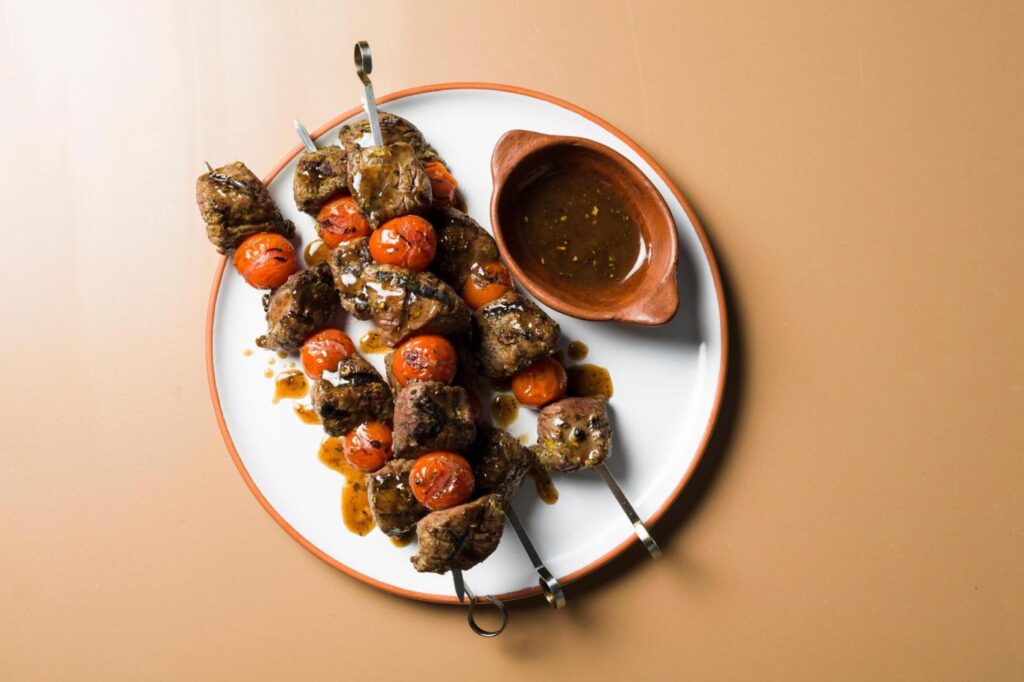
On the picturesque Portuguese island of Madeira, a culinary tradition thrives that combines simplicity with aromatic depth: the espetada. This traditional dish involves threading chunks of beef onto fresh-cut bay branches and cooking them over open flames. The bay leaves impart a unique menthol aroma and flavor, enhancing the meat’s natural richness. In a modern twist on this classic, dried bay leaves are used to create a seasoned salt that transforms the dish into a convenient yet flavorful home-cooked meal.
In a streamlined adaptation from the cookbook “Milk Street 365: The All-Purpose Cookbook for Every Day of the Year,” dried bay leaves are pulverized in a spice grinder to create a fine seasoning. This is mixed with garlic and olive oil, then used to coat the beef before grilling. The result is a dish that captures the essence of Madeira’s traditional espetada while being accessible for home cooks.
The Art of Espetada: Tradition Meets Innovation
The traditional espetada is more than just a meal; it is a cultural experience that brings together family and friends around a fire. The use of bay branches as skewers is both practical and flavorful, imbuing the beef with a distinctive taste that is synonymous with Madeira. However, for those without access to fresh bay branches, dried bay leaves offer a viable alternative.
Christopher Kimball, founder of Milk Street, explains, “By grinding dried bay leaves, we can still capture that signature flavor. The key is to balance the bay’s intensity with other ingredients like garlic and olive oil.” This modern adaptation also involves adding cherry tomatoes to the skewers and creating a Madeira wine reduction, which enhances the beef’s flavors with a subtle sweetness.
From Tradition to Table: The Recipe
To recreate this dish at home, begin by making the bay seasoning. Combine crumbled dried bay leaves with salt and pepper, then grind them into a powder. This mixture is combined with grated garlic and olive oil to form a paste that is rubbed onto cubes of beef. The beef is then threaded onto metal skewers, alternating with cherry tomatoes.
For the sauce, a simple Madeira reduction is prepared. Madeira wine, a fortified wine from the island, is simmered with garlic and bay salt until it thickens. After grilling the skewers to medium-rare perfection, the sauce is drizzled over the meat, adding a rich, glossy finish.
Expert Insights and Culinary Tips
According to culinary experts, the choice of beef cut is crucial for achieving the desired texture and flavor. “Flat iron steak or beef sirloin tips are ideal for this recipe,” suggests Kimball. “They offer a good balance of tenderness and flavor.” For those willing to splurge, beef tenderloin can elevate the dish further.
Another important tip is not to substitute fresh bay leaves for dried ones. Fresh leaves do not grind down as finely and can overpower the dish. Additionally, leaving some fat on the beef, known as “the flower of the espetada,” helps with charring and adds depth to the flavor profile.
“Don’t use top-shelf Madeira here; an inexpensive nonvintage bottle will do just fine.”
This practical advice ensures that the dish remains accessible without compromising on taste.
The Cultural Significance and Future of Espetada
Espetada is more than just a dish; it is a symbol of Madeira’s rich culinary heritage. As global interest in traditional cuisines grows, adaptations like this one help preserve and share these flavors with a wider audience. By blending tradition with modern convenience, home cooks can explore the world through their kitchens.
Looking ahead, the popularity of such dishes may inspire further culinary innovations, encouraging chefs and home cooks alike to experiment with traditional flavors in new ways. As Kimball notes, “The beauty of cooking is that it allows us to travel without leaving our homes, to experience cultures through their food.”
For those eager to explore more recipes and culinary techniques, Christopher Kimball’s Milk Street offers a wealth of resources at 177milkstreet.com/ap.



